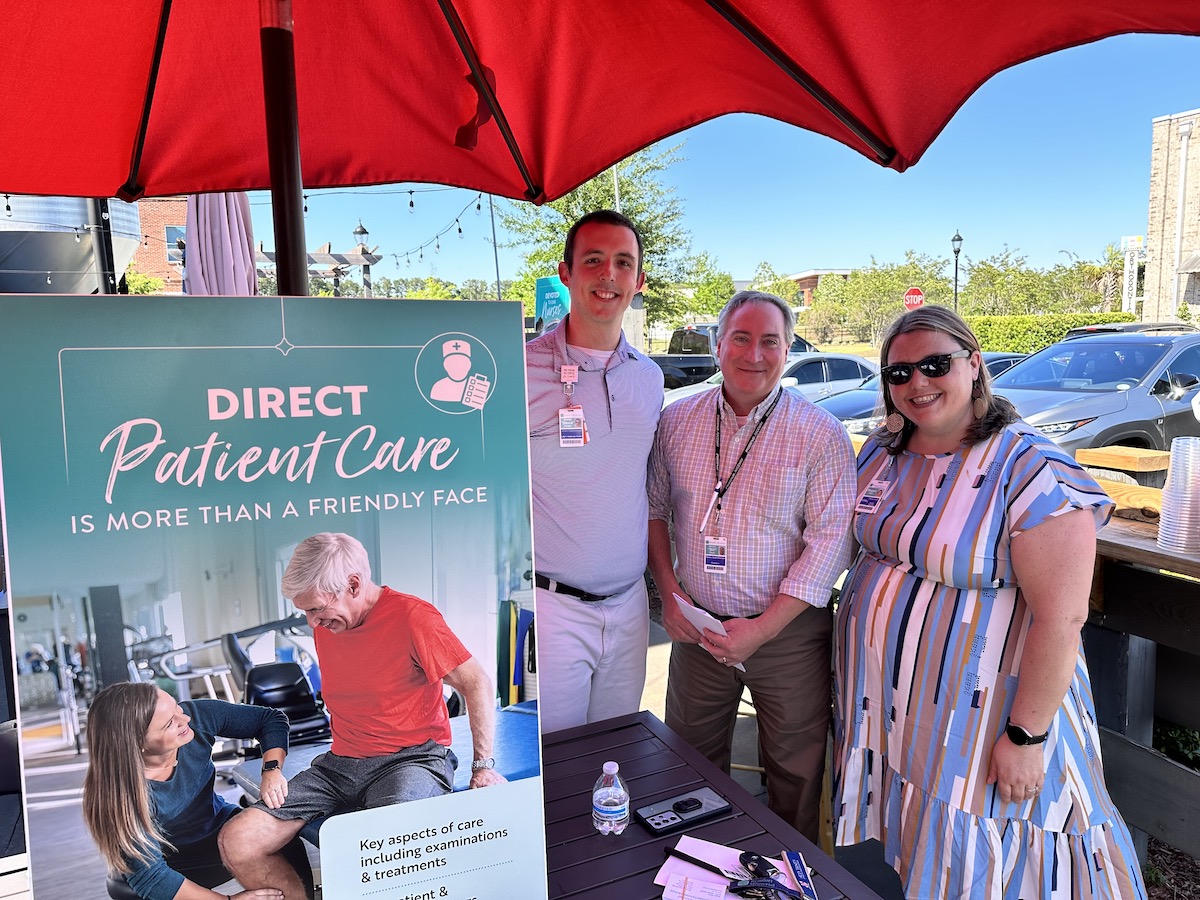Second leading cause of cancer-related deaths in the U.S. is preventable
Since an abnormal growth was found in his intestines 40 years ago, Hugh Gouldthorpe has had a colonoscopy every three to five years without fail.
Being a stickler about the regular screenings paid off.
Two years ago during a routine exam, Beaufort Memorial Hospital gastroenterologist Dr. Kevin Kearney found a cancerous growth during the screening.
“I credit Dr. Kearney for saving my life,” said the Beaufort resident.

Although the tumor had not penetrated the muscle, one lymph node had been affected. Following surgery to remove the tumor, Gouldthorpe received 30 rounds of radiation and chemotherapy at Beaufort Memorial’s Keyserling Cancer Center. It was followed a month later by eight more chemo treatments. He remains clear of cancer today.
The second-leading cause of cancer-related deaths in the United States, colorectal cancer is expected to kill an estimated 50,830 men and women in 2013. The Centers for Disease Control and Prevention estimates as many as 60 percent of colorectal cancer deaths could be prevented if all men and women age 50 or older were screened routinely.
A colonoscopy, the test most often recommended by physicians, can detect inflamed tissue, ulcers and abnormal growths called polyps—clumps of small, benign cells on the lining of the large intestine.
Not all polyps become cancer, but when they do, the cancer can damage nearby tissue and organs and metastasize or spread to other parts of the body.
“A colonoscopy is extremely important,” said BMH gastroenterologist Dr. Joel Ingegno, who practices with Kearney at Beaufort Memorial Center for Digestive Diseases in Port Royal. “It is one of the ways we can almost absolutely guarantee prevention of colon cancer.”
During the screening, a long, lighted tube with a tiny camera is inserted into the rectum and through the colon. If a polyp is found, the doctor can usually remove it using a special tool attached to the scope.
Patients are sedated so they don’t feel a thing. What most people dread is the “bowel prep” that is required before the screening. The oral laxative solution is necessary to clean out your bowels so the doctor has a clear view of the lining of your colon.
“It’s so important,” Kearney said. “It’s not a worthwhile test if I can’t see.”
In Gouldthorpe’s case it was critical.
“If he hadn’t prepped properly, his tumor could have easily been missed,” Kearney said.
Along with cancer, other gastrointestinal problems can be discovered during a colonoscopy, including diverticulitis, colitis, hemorrhoids and bleeding vessels. Polyps are found in about half the screenings.
“If I see polyp,” Ingegno said. “I can remove it almost invariably right through the colonoscope.”
The American Cancer Society recommends men and women at average risk for colorectal cancer have their first colonoscopy at age 50. For African-Americans, who have a higher incidence of the disease, the recommended age is 45. If the screening turns up clear and there is no family history of the disease, you can wait 10 years before being tested again.
March is colorectal cancer awareness month, a good excuse to schedule a colonoscopy if it’s been a few years since you had one — or if you’ve never been screened. For more information on scheduling your colonoscopy or any of Beaufort Memorial Hospital’s digestive (GI) services, visit www.bmhsc.org. Drs. Kearney and Ingegno can be reached at 843-522-7890.






